This website uses cookies so that we can provide you with the best user experience possible. Cookie information is stored in your browser and performs functions such as recognising you when you return to our website and helping our team to understand which sections of the website you find most interesting and useful.
Interview: Thomas Robson-Kanu on tuning in to turmeric
By Gabriel Power | 6 April 2021 | Sport
When injury threatened his career at a young age, the Premier League and Wales star found solace – and science – in the ancient spice. Now, with The Turmeric Co., he’s telling the world
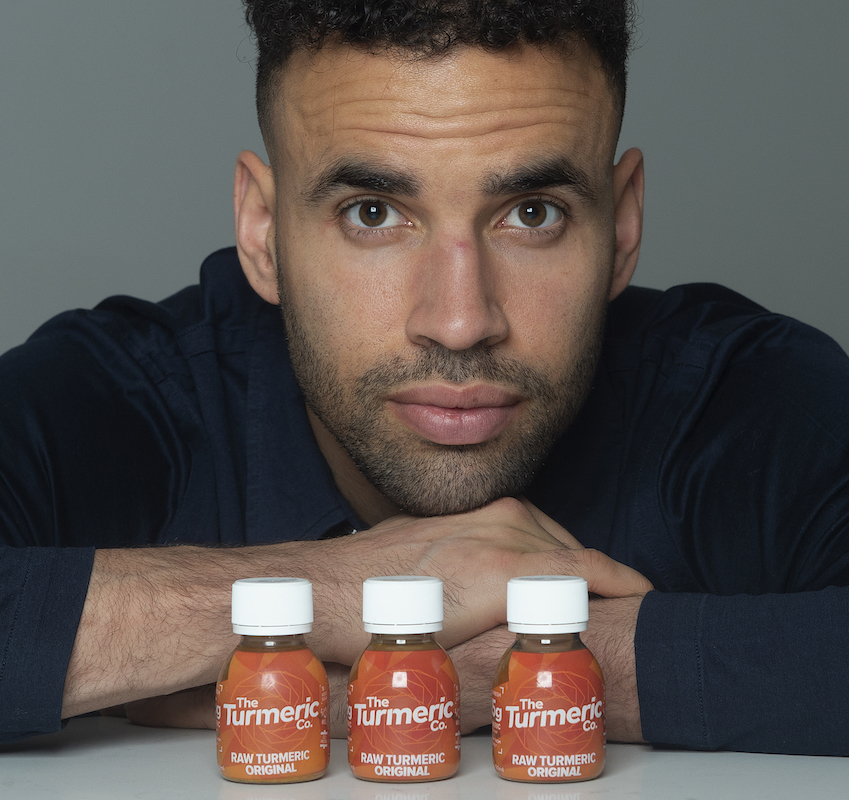
When it comes to mental or physical wellbeing, few people have put as much faith in a single ingredient as Thomas Robson-Kanu has in the versatile turmeric root. As a teenager, the striker – known to most by his nickname “Hal” – was plagued by ligament injuries and frequently found himself playing through pain even once his ailments had recovered. That was until he and his father, after years of experimenting with various homemade concoctions and poring over peer-reviewed academia, found the answer in the bright yellow spice that most barely see as anything more than an addition to a pleasant curry or paella.
Skip forward 15 years and the footballer has turned entrepreneur, selling shots of his fine-tuned recipe under the banner of The Turmeric Co. and promoting healthier living across the sport and beyond. Sitting down to speak to Tempus in between matches this week, Robson-Kanu told us how his love of turmeric was kindled, how his brand came to be and how being ensconced in the hyper-corporate world of Premier League football set him up for business success.
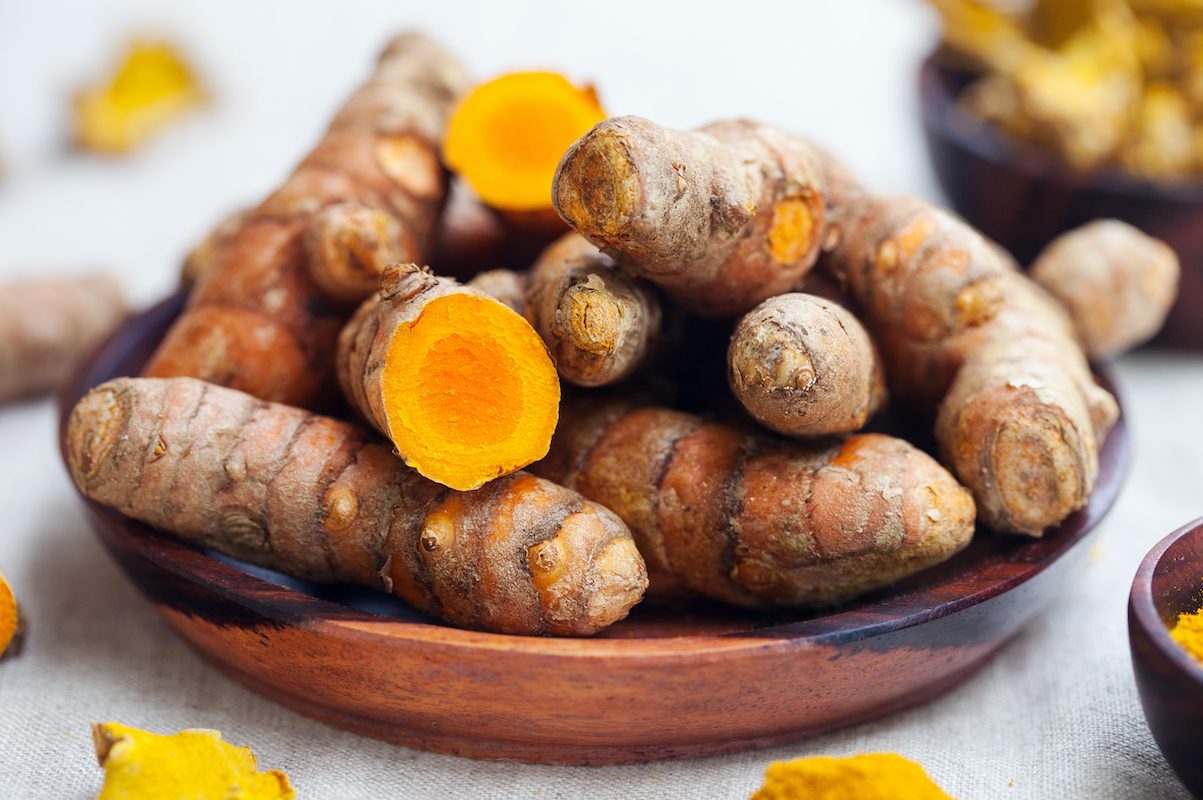
“I ruptured my cruciate knee ligament twice as a teenager, and on recovery I couldn’t shift the inflammation, the swelling or the pain,” he tells me. “I was playing with constant restriction, so I began taking anti-inflammatory treatments but experienced adverse effects including severe nausea and passing blood in my urine; as a 17- or 18-year-old this was pretty traumatic, and it was at this point that I realised I needed a natural solution.
“My father and I began doing a lot of research into the properties of natural ingredients and, whether it was through scientific papers, ayurvedic practices or Eastern medicine, the same ingredients kept popping up as beneficial to the body: watermelon, pineapple, pomegranate, ginger and particularly turmeric,” he says. “So over a few years we looked into getting combinations of these ingredients into my body in the most convenient way possible and eventually my dad created a blend out of them – almost like an elixir – and the first time I tried it was remarkable. I’d never had this level of nutrients in my body before.
“I woke up one day after about six weeks of drinking this concoction and realised, while stood in the shower, that this was the first time I had woken up pain-free in over two years.”
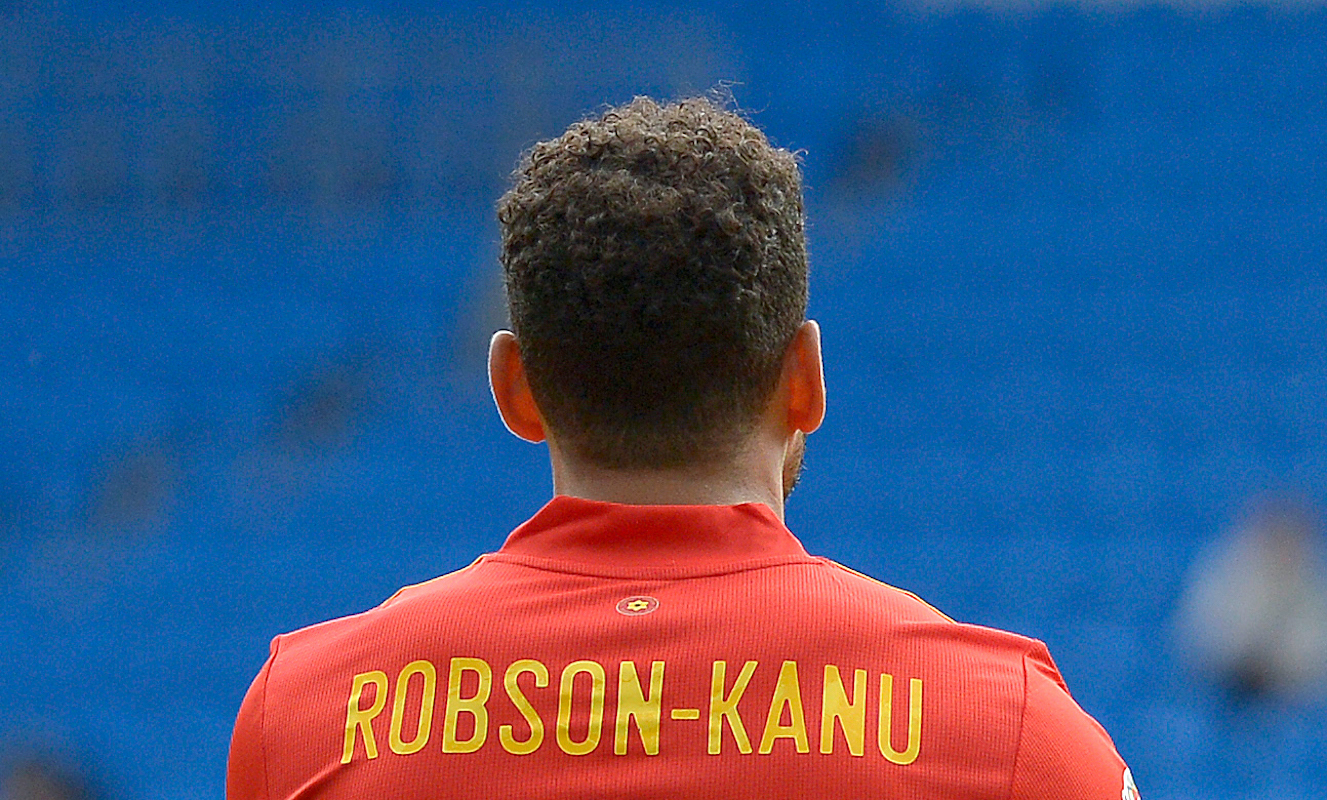
After witnessing the effect it had on his post-injury recovery – he calls it his “lightbulb moment” – Robson-Kanu and his father went on to perfect and condense the recipe into small shots which became regular consumption for friends and family – all of whom ended up swearing by the power of the blended root – as well as teammates at a professional level.
“Everyone just loved it,” he chuckles, setting himself up for the story of how a passion project became a prominent healthcare and fitness brand. “By 2016 we were making upwards of 200 of these shots a week out of my dad’s kitchen, such was the demand. And it was around this time that I stumbled across a ‘turmeric shot’ on the shelf while browsing through Harrods and I was absolutely delighted because it meant I wouldn’t have to make my own anymore! Finally, someone else had discovered the power of this natural ingredient in a raw format.
“I bought a load and went to drink them with my dad and we had to spit them out – they were watery, sugary and about 80% apple juice,” he adds. “They were using turmeric powder rather than the root itself, which completely negates the effect of the raw compound.”
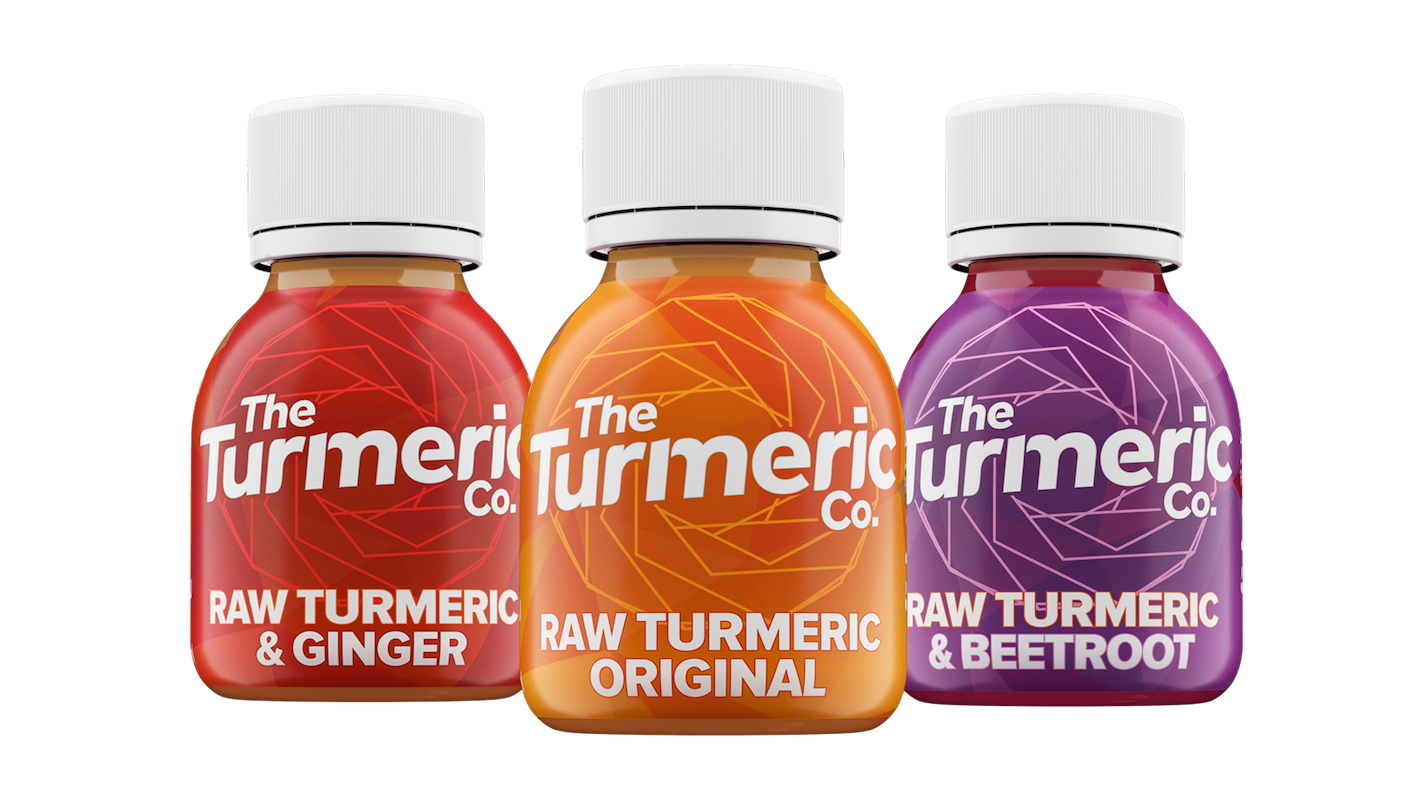
So the pair turned to science and confirmed their suspicions; there was indeed a clinically proven link between raw turmeric consumption and physical wellbeing, meaning there was still a gap in the market despite the emergence of these other so-called turmeric shots. And in 2018, the footballer’s very own business The Turmeric Co. was born, offering tasty, pocket-sized bottles of Robson-Kanu’s immune-strengthening, anti-inflammatory, energy-boosting turmeric shot.
So far, it has been a sensation. The Turmeric Co. has already racked up tens of thousands of satisfied repeat customers while remaining the only shot company to maintain its own mammoth production facility. ts website is chock-full of rave reviews and a healthy array of PDFs and links on his website containing academic studies into the power of turmeric. But even if deep-diving into online research papers isn’t your thing, it is still clear that Robson-Kanu’s reliance on the shots is paying dividends; he has noticed that he recovers faster from injury than many of his fellow athletes and even made it back into the Wales squad in time for a round of World Cup qualifiers after a nasty forearm fracture mere months ago.
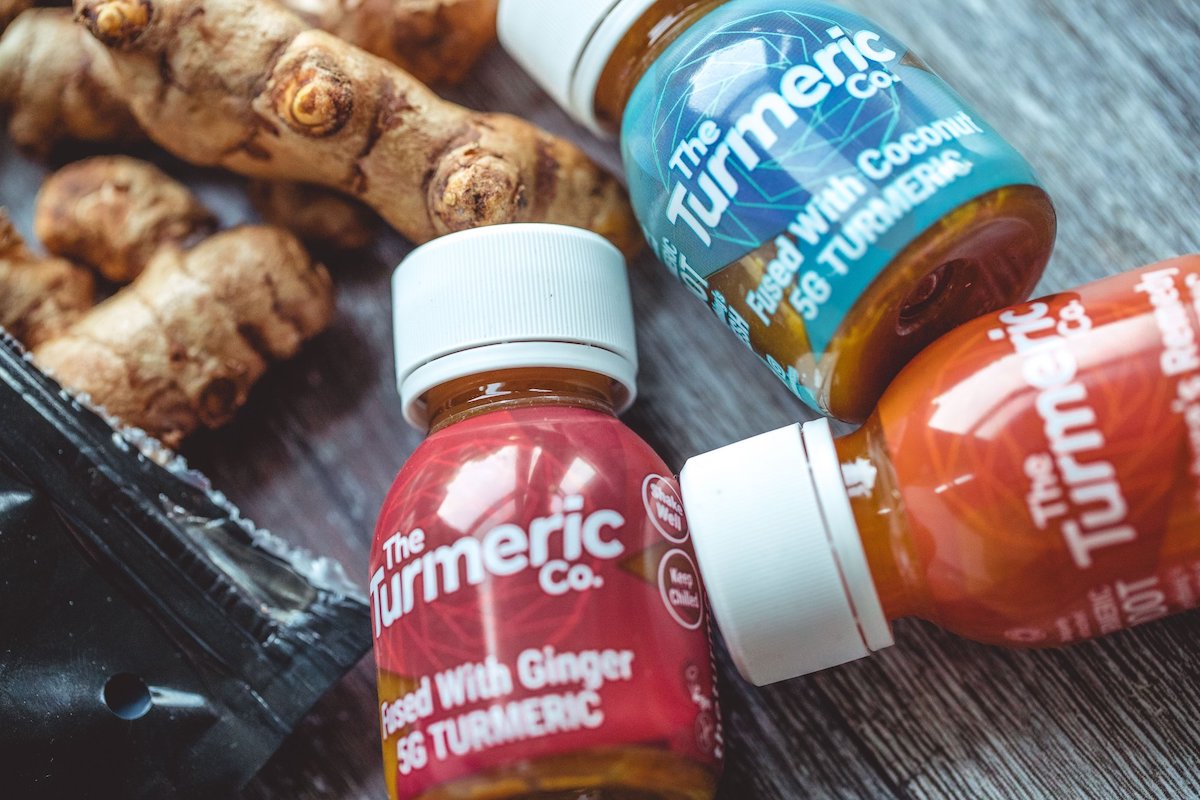
Not content to simply sit back and rake in the turmeric dollars, Robson-Kanu has also used his platform as both a CEO and a Premier League footballer to promote healthier eating across the board, and has become one of the most prominent proponents of banning junk food sponsorships in sport.
“I’ve been so passionate about this because, despite all the advancements we have made as a civilisation in terms of technology and communication and manufacturing, we’ve never had higher levels of disease,” he says. “The rates of obesity and heart disease across the world are through the roof and on an upward trajectory, and to me part of the reason behind this is our conditioning to accept junk food as a norm.
“For example, from a very young age, kids at football schools across the UK will see McDonald’s as their main sponsor, while the FIFA World Cup’s key advertiser is Coca-Cola,” he adds with an air of exasperation. “When these companies are given such a prominent role on the global footballing stage, people of all ages start to associate them with the sport as a whole, and as one of the most-watched sports on Earth, that presents a big problem.
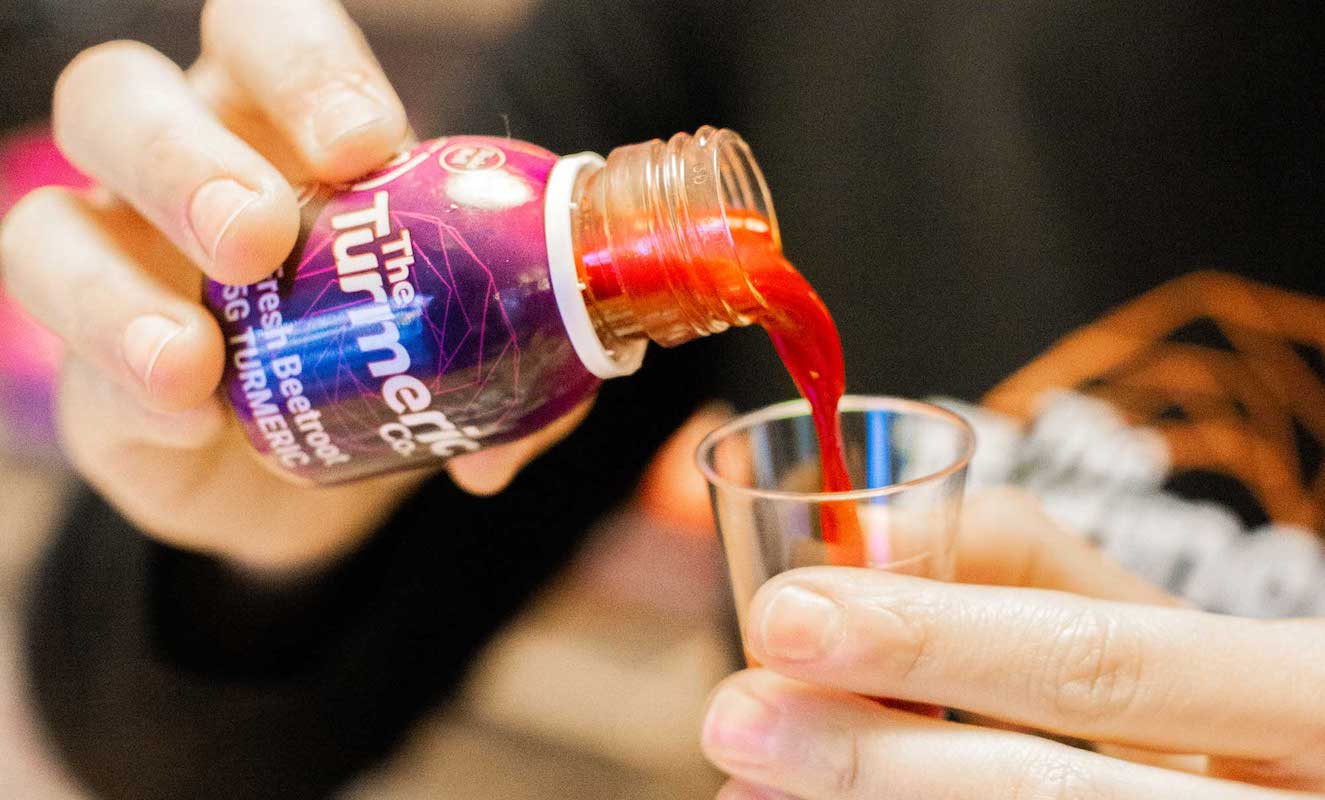
Robson-Kanu suggests this, combined with knowing how much value a nutritionally beneficial diet can have, shows him that this issue is in urgent need of addressing, and he has a few ideas of his own, including suggesting that if nutritionally poor brands must be included in the marketing of football, they should be clearly labelled as a “treat partner”.
“It even stretches beyond the sport,” he continues. “Our health service can barely offer the support needed to those who are not able to consume healthier food or who have not been educated on the topic.
“So it’s something that I am hugely passionate about, and if we can sufficiently educate people, not only are we going to have a healthier population, but a happier one too.”
For more information, visit theturmeric.co







